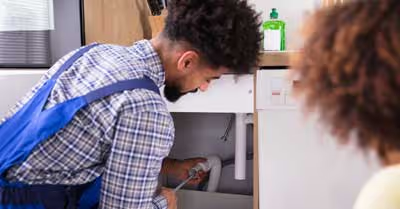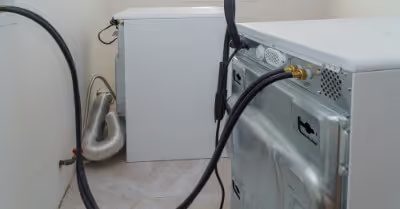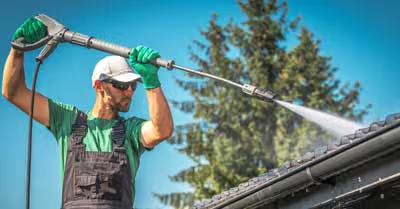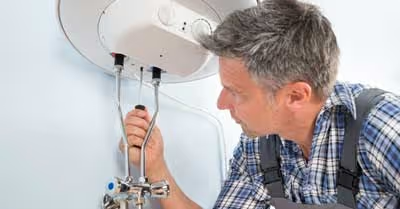Table of Contents
Home-based remedies are not worth the hype
In the context of pest control, we often hear about natural ways of getting rid of pests or using organic pesticides. They can be a good alternative to chemicals and poisons commonly used by both individuals and pest control services. While their efficacy against pests and infestations need to be seen by individual users, we must read the instructions on their packets about how to use it safely, especially when you have pets in your home. Your pets can get sick with inhaling or ingesting natural and organic pesticides. Precautions are necessary while using these items which are often projected as safe and innocuous.
Garlic & essential oils as pest repellent
Many homemakers believe that garlic can act as an effective insect repellant. While that belief still does not have any strong scientific backing, what is, however, clear is if cats or dogs ingest garlic in large quantities, it can cause gastrointestinal distress, anemia, and toxicosis among them. Similarly, some essential oils are touted as natural insect repellants. But in the concentrated form, these oils can be toxic for pets and can cause lethargy, weakness, uncoordinated gait and tremors among cats and dogs. Cats are especially allergic to essential oils and can develop symptoms like oral irritation, drooling, vomiting and liver toxicosis. It is always better to check the veterinarian if it is okay to use essential oils as an insect repellant, especially when you have some pets at home.
Stop the entry of insects
The best pest control method can be to prevent the entry of pests, who come to your house in search of food, water, and shelter. By making sure that there is no food or water left for them anywhere in the house, you can check their infestation. By regularly cleaning of the house and their possible nesting areas, we can make the house free from insects to a large extent.
Following tips can help pest infestations at bay:
- Sweep and clean up food crumbs, leftovers
- Perform regular mopping & vacuuming
- Keep garbage cans, compost bins covered
- De-clutter garages; remove all nesting materials
- Seal up all access points for insects
- Repair damaged door and window screens
- Seal cracks in kitchen and bathroom
DIY pest control measures
It is not very uncommon to see people taking it upon themselves to eliminate pests from their homes. After all, we all are familiar with snap rat trappers or cockroach or mosquito repellants. These are low-impact measures that we carry out ourselves and they don’t harm our pets. However, if we are using anything beyond the measures mentioned above we must take enough precautions to protect our pets at home.
Take precautions
For example, if you are going to use some poisonous substance to kill the rodents, make sure you put the baits at appropriate spots hidden away from sight and reach of your pets. Dogs and cats tend to inspect everything that seems new to them. Inhaling or ingesting such poisonous substances can leave them sick or even kill them. Similarly, using traps or glue pad against rodents and other pests should be done carefully, making sure that none of your pets accidentally or out of curiosity get trapped or injured.
Read the labels
Finally, if you are going to use the poison against the pests, read the instructions carefully before you start the work and ensure that your pets are in safer locations away from where the action is. Keep the pet poison helpline numbers handy just in case you need them.
Safer & least toxic insecticides
The good news is that there are many insecticides available in the market that you can safely use at home to control pesky insects such as ants, spiders, and cockroaches. Borates and pyrethroids in low concentrations, neonicotinoids such as imidacloprid, fipronil, and hdramethylnon are insecticides considered safer to use at home or yard even if you have pets around. Among the least toxic solutions come boric acid, gel baits, and diatomaceous which poison the pests slowly. These insecticides are applied in cracks and crevices usually inaccessible to pets.
You can also safely use some pest control products that contain Bacillus thuringiensis bacteria, especially against mosquito and other insects. Microbe-based pesticides are also considered safe for pets. This kind of bacteria can kill insect larvae but won’t inhabit in the pet’s body. Nor will it cause any infection or illness among pets.
Engaging pest control services
Measures taken by ourselves are not fool-proof and do not free our homes of all the infestations that maybe there – fungus, insects, mosquitoes, worms, cockroaches, rodents, bugs, mites, and so on. To tackle the problem effectively, we often take resort to pest control services that use strong chemicals and poisonous substances to get rid of stubborn infestations.
Before inviting them home, it is good to inform them about the pets that you have at your home. This will help them plan their operation with the pets in mind. They would also give us necessary guidelines as to where the pets should be kept during the pest control operation and after how much time since the cessation of such operation they should be brought to the house. They have a better understanding and follow a standard operating procedure.
Transfer the pets to a safer location
In any case, before the pest control agency starts their work, we must move our pets away from the house to safer locations. If the pest control work is limited to the outside, we can keep the pets inside but if such an exercise is going to take place both inside and outside the house, there is an even more urgent need to move out the pets, possibly to a neighbor’s house.
Precautions for birds & reptiles
Birds and reptile pets are more sensitive than animals such as cats and dogs. They need to be specially taken care of if we are going to use chemicals or poisons in our bid to rid our homes of infestations. We must make sure that their habitat does not get contaminated by the pest control chemicals, substances, and gases.
Keeping your pet safe from pest infestation
If you just want to take some preemptive measures so that your pet does not fall prey to pest infestation, you can safely do most of the things that come to your mind except for using strong chemicals or poisonous substances. When it comes to using such dangerous chemicals and substances, it is better to take all standard precautions and more, such as involving an expert to do the needful.
Let’s look at the preemptive measures that you can take to protect your pet from attacks from the pests. You can make sure that the living environment of your pet is as clean and bug-free as it is yours and your family members. So you can take the following measure to ensure they have a bug-free living environment:
- Regularly clean your pet’s containers with dish cleaning sops and clean water
- Don’t allow water to accumulate or stagnate in and around your house
- If there is a leaky pipe somewhere in your house, get it fixed immediately
- Keep your pets under proper watch and don’t allow them to get into the infested area
- Always keep your pets’ food in air-tight containers
- Reduce and eliminate ticks by trimming and pruning the bushes regularly
If despite your best efforts to give your pet a clean living environment, if the pets have developed common infestations, you need to do something to free them of the infestation otherwise they will fall ill, calling for a more serious intervention that may involve both medical treatment as well as professional help to get rid of the infestation. There are a few common infestations among the pets that you can easily spot and identify. There are some common home-based remedies as well for these infestations which you can try. If the problem subsides and your pet is free from the infestation, it is advisable that you share the remedy and what worked in your case with others or on social media so that more people can know about it and treat their pets’ infestation through such home-based remedies.
If the pest-infestation is serious, you can also take help from the veterinary doctor, who can advise you on the correct treatment from the pet’s point of view as what can be less harmful to them.
Conclusion
While pests and pest control measures are real and going to stay the way they are, the only way we can prevent accidents from happening, especially in the context of pest control and pets and small children, is by taking all possible precautions. It’s always better to ensure that there is no accident than dealing with any untoward situation. Pets are a close member of our families, and their wellbeing is a matter of serious concern for every member of the family. During emergencies like pest control exercise, they should be taken proper care of and kept away from harmful substances.
Recent Articles
















